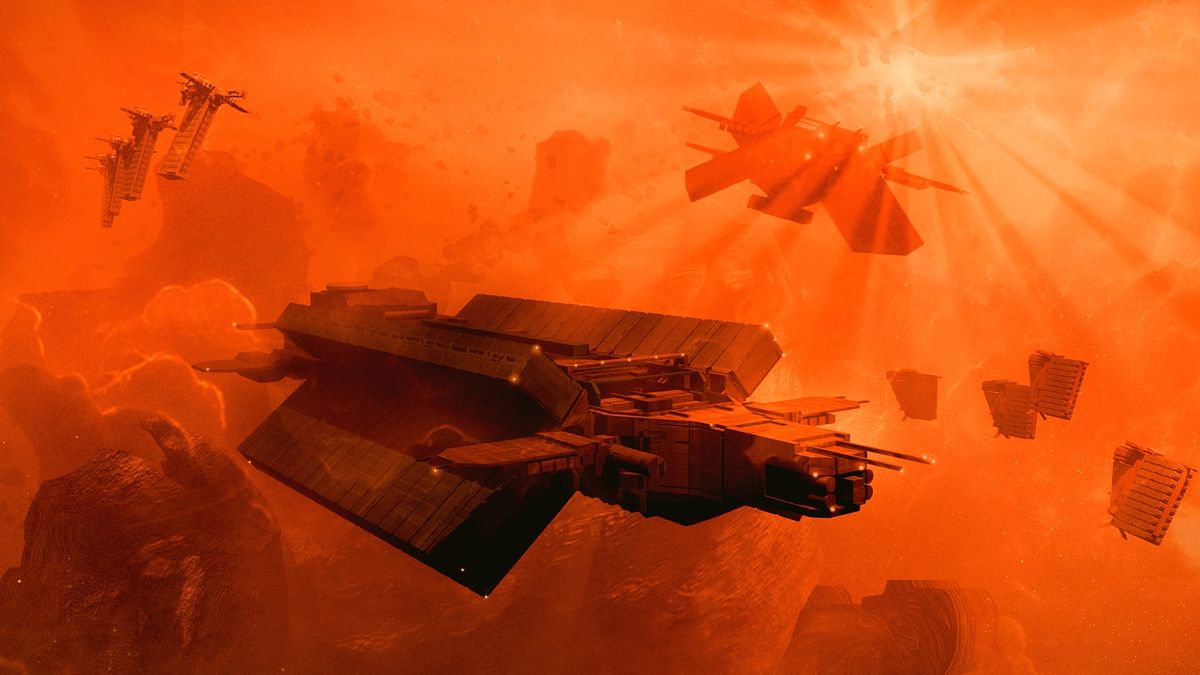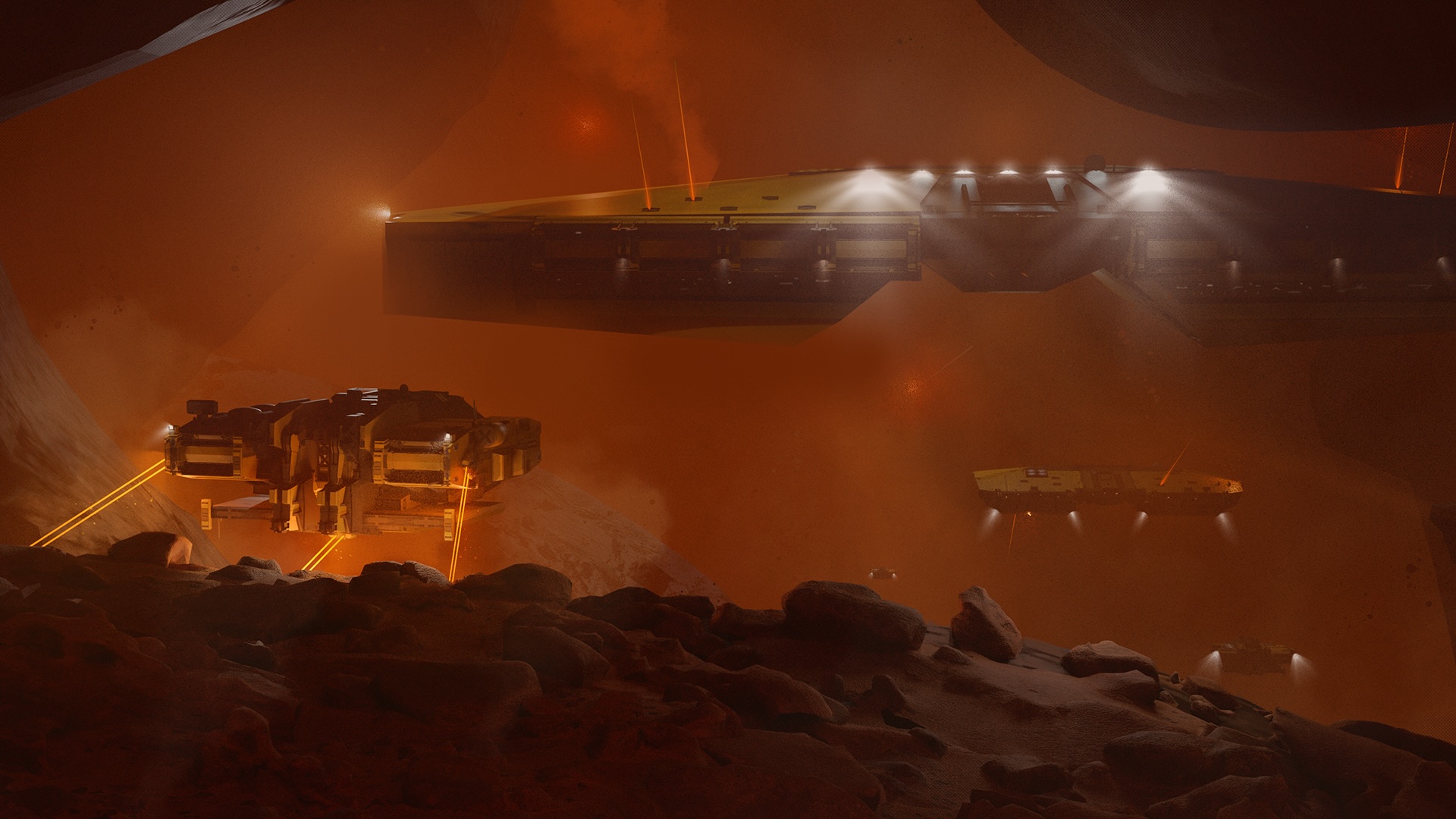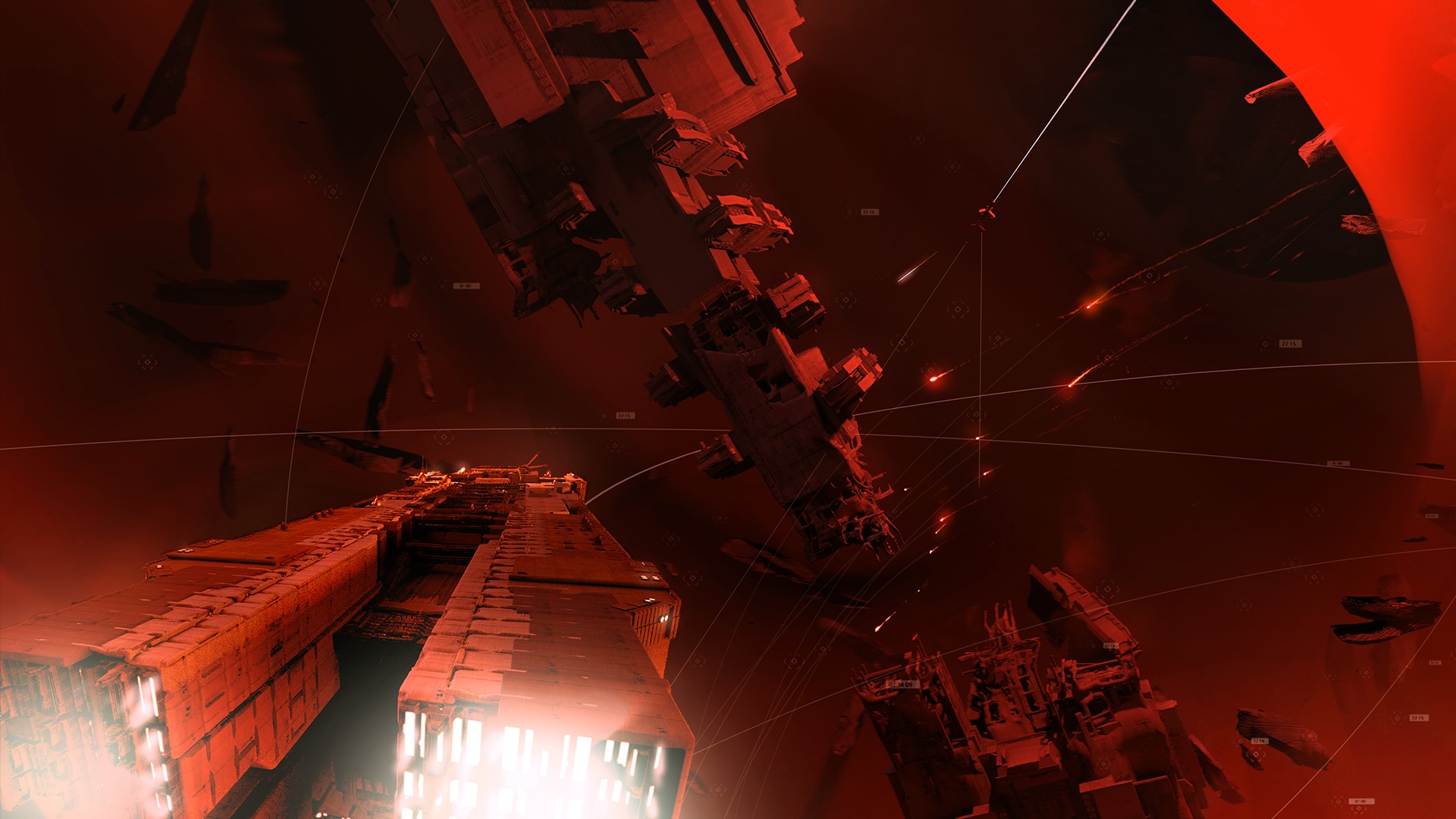
This year’s PC Gaming Show: Most Wanted included a new trailer for EVE Frontier, CCP Games’ upcoming survival-focused spinoff to the long-running EVE Online. The new space sim is promising an oppressive atmosphere, more granular combat, and punishing survival elements, all built on a blockchain-based framework that actually, as difficult as it is to believe, seems to add to the experience—just don’t call it a “blockchain game,” its developers insist.
Blockchain is involved, sure, but it’s more about the fact that it is distributed and not centralized.
CEO Hilmar Veigar Pétursson
With all the hoopla around AI, it’s easy to forget that just a scant two years ago, NFTs and crypto were an unstoppable, overheated leviathan threatening to remake gaming with new forms of microtransactions and promises of an interoperable Fortnite-ification of all games. Those buzzwords have firmly landed on the “what’s not” list since right alongside the metaverse, but EVE Online studio CCP Games is still working on a blockchain-based game (notably, there are no NFTs in sight). After seeing what the EVE Frontier team is working on and hearing the developers’ vision for the game, I was persuaded that this sister game actually justifies its use of the tech.
The most compelling argument I heard from CCP, and something that distinguishes EVE Frontier from every half-baked MMO project I saw at the height of crypto-mania, is that the blockchain stuff is meant to be in service to the game Frontier is trying to be and not the other way around.
“When we were building EVE Online, we decided to build it on top of a database. Our choice of a database was hotly contested—at least in this community of people making MMO-like games,” said CCP CEO Hilmar Veigar Pétursson. “And never did we really position the game, ‘Eve Online: The First Database Game!’ And we’re not really looking to do that with EVE Frontier either. It is not really a blockchain game, no more than EVE is a database game.
“We’re just being very explicit about it because it is a hot topic, and we don’t want to hide it away. Blockchain is involved, sure, but it’s more about the fact that it is distributed and not centralized.”
The top line is that CCP is using blockchain to make EVE Frontier moddable on the client side without compromising the basic integrity of the MMO. “Using blockchain technology also lets us open up this universe to a layer where other players will be able to modify and co-create this universe with us,” said CCP chief blockchain engineer Cheryl Ang. The primary point of contact for this modability will be “Smart Assemblies,” valuable space stations that will serve sort of like a survival game home base, but with added complexity.
“You can think of it kind of like modding on a traditional game,” explained EVE Frontier product manager Scott McCabe. “You can play the original game as it came. You can then start getting truly independent third party mods. And finally you can actually build your own, if you set up all the development environments and really get into the nitty gritty.”
McCabe was quick to clarify that you don’t need to be an experienced coder to enjoy EVE Frontier or its mods. Just like how a vanguard of modders will spearhead a community of thousands or even millions on the Nexus or ModDB, McCabe and Ang hope to see sharing and trading of mods and coding expertise among Frontier’s community.
Some players programmed a Smart Assembly to automatically host king of the hill-style PvP tournaments, dispensing rewards to the victors. Others turned Smart Assemblies into vendors and even simple NPC questgivers.
McCabe and Ang explained that the blockchain underpins something CCP calls “digital physics”—immutable rules in EVE Frontier that will limit what modders can create, ensuring that they can transform the game, but never “break” it. McCabe explained to me that you won’t be able to cheat with Smart Assemblies, for example—no infinite ammo and fuel, or cranking up your speed and damage beyond the impossible.
What CCP’s proposing with Eve Frontier—client-side modding of a live multiplayer game without compromising the basic integrity of the experience—doesn’t sound like anything I’ve seen before in a game. I don’t know how feasible it would have been to build it using tech with less controversy, name recognition, and investor interest than blockchain, but McCabe intimated that part of the motivation was to use blockchain’s decentralization to eventually defer EVE Frontier’s governance entirely to its players instead of CCP, and even ensure the game’s continued operation in the event of CCP’s dissolution.

A move that impressed me on that front is CCP’s plan to make the Carbon engine—which powers both EVE Online and EVE Frontier—open source. I find that to be more evidence of EVE Frontier being a genuine game design experiment rather than a belated passenger on the crypto hype train, though in-game transactions—including the purchase of new ships—will be done with a crypto wallet set up in character creation rather than EVE Online’s ISK in-game currency.
Some of what has already been done in EVE Frontier’s playtests call to mind EVE Online’s long and legendary history of emergent shenanigans. Some players programmed a Smart Assembly to automatically host king of the hill-style PvP tournaments, dispensing rewards to the victors. Others turned Smart Assemblies into vendors and even simple NPC questgivers for other players. Since players have to build and maintain their own warp gates in the sparsely-populated Frontier, CCP observed players weaponizing warp gate control against enemy factions.
Scary Space
The combat and exploration of EVE Frontier are similar to EVE Online at first glance. You control a single ship from a zoomed out, overhead—at least as much as you can be “overhead” in space—perspective, as opposed to the first-person cockpit of Elite Dangerous or third-person rear view in something like Starfield.

“The action’s a little bit faster, more decisions that you have to make in the heat of the moment with imperfect information, and that will lead to some emergent gameplay,” McCabe said of EVE Frontier’s moment-to-moment combat. The new game will introduce line of sight and cover, meaning that stealth, surprise, and positioning will be critical in a way they never were in the original EVE.
“You might not know what’s behind the next rock, you might not know who is waiting for you, or perhaps how many reinforcements they have when you’re setting your trap,” explained McCabe, and that tension will only be heightened by EVE Frontier’s more limited resources compared to EVE Online, where the loss of a ship can already be a devastating financial proposition—McCabe suggested that these complications resulted in an experience that “bordered on survival horror.”
McCabe also hopes this will make EVE Frontier feel like a larger, more dangerous universe, reminding me of the way the beginning of a game of Civilization can feel so vast, threatening, and full of infinite potential, versus a Civ late game fully explored and settled map, represented by EVE Online. “You can’t just perpetually fly around forever without eventually running out of energy. You will need to stop and do something. That makes the universe feel substantially bigger than infinite free travel.”
EVE Frontier sounds like a fascinating, unique space sim that makes a genuinely worthwhile use of crypto-derived technology I had basically written off. If nothing else, CCP’s extensive experience with operating a digital economy that long preceded crypto commands a certain benefit of the doubt, as does its commitment to the project well after the gold rush already ended. If you’re interested in EVE Frontier, you can go to the game’s official website to purchase a founder’s pack and participate in ongoing playtests.



















